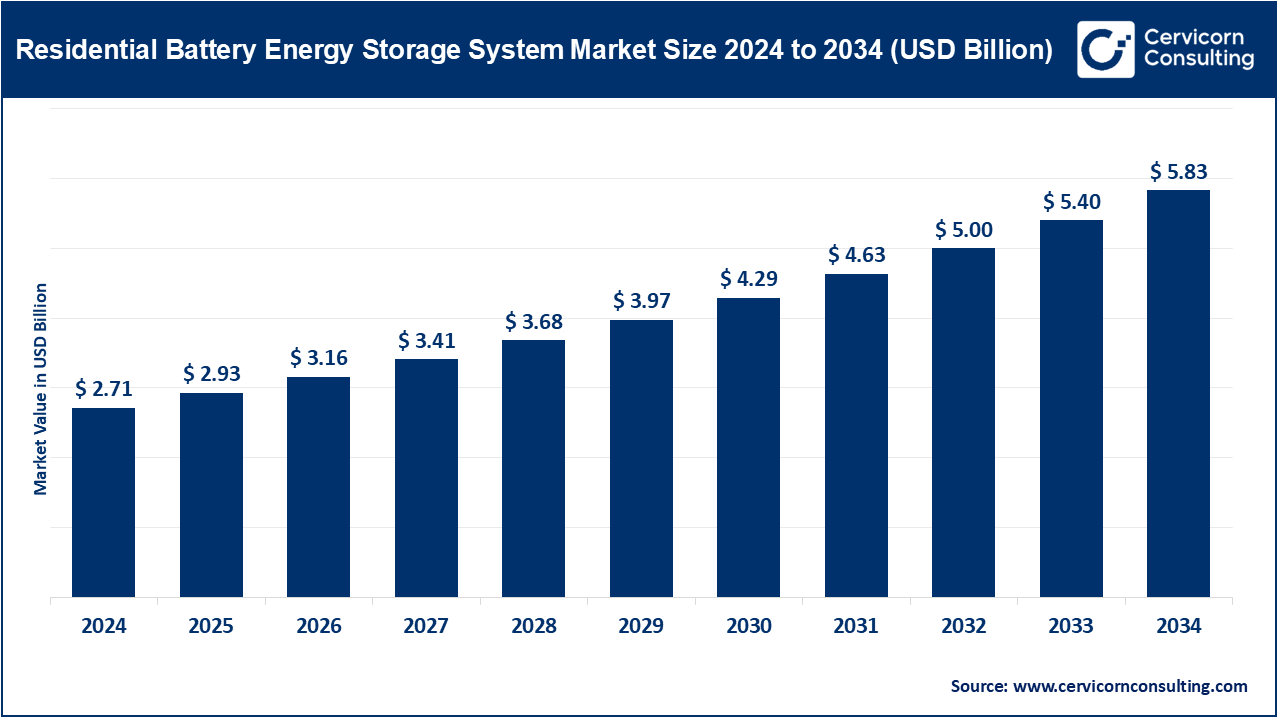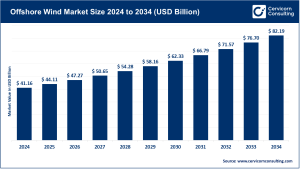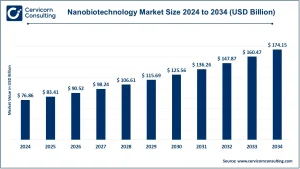Market Overview
The global residential battery energy storage system market is experiencing strong growth as both homeowners and utilities increasingly prioritize sustainable and dependable energy solutions. The market was valued at approximately USD 2.93 billion in 2025 and is expected to reach around USD 5.83 billion by 2034, reflecting a CAGR of 7.96% from 2025 to 2034. RBESS solutions store electricity from renewable sources or the main grid for household use, providing benefits such as backup power, improved energy efficiency, and seamless integration with smart grids. Ongoing advancements in lithium-ion batteries, solid-state storage, and energy management systems are making these technologies increasingly cost-effective and widely accessible.
Get a Free Sample: https://www.cervicornconsulting.com/sample/2750
Key Market Trends
-
Integration with Virtual Power Plants (VPPs): Residential batteries are being linked to cloud-based VPPs, enabling households to collectively contribute energy during peak periods. For instance, Vermont’s 2025 initiative allowed home batteries to support the grid, boosting energy efficiency and renewable adoption.
-
Adoption Driven by Grid Instability: Frequent power outages are prompting more homeowners to adopt battery storage. In Puerto Rico, by August 2025, over 10% of households had combined solar panels with batteries, fostering decentralized and resilient energy systems.
-
Preference for Medium-Capacity Systems (5–15 kWh): Systems in this capacity range strike a balance between affordability, storage, and household energy needs, making them the most practical option for residential users.
-
Rising Popularity of On-Grid Systems: Homeowners increasingly favor on-grid configurations for energy export, peak load management, and optimized electricity consumption, offering both flexibility and cost savings.
-
Lithium-Ion Battery Dominance: Lithium-ion batteries accounted for 42.1% of the market in 2024, driven by high energy density, long cycle life, and compatibility with renewable systems.
Market Drivers
-
Government Policies and Incentives: North America led the market with a 36.9% share in 2024, supported by favorable regulations and incentives promoting renewable energy adoption.
-
Environmental Awareness and ESG Focus: Rising demand for low-carbon, energy-efficient solutions is accelerating RBESS adoption in both residential and smart building sectors.
-
Technological Advancements: Innovations in battery chemistry, energy management software, and cost-efficient manufacturing are enhancing accessibility and affordability.
-
Energy Security and Independence: Consumers are increasingly motivated by uninterrupted power supply and the ability to maximize solar energy usage.
Impact of Trends and Drivers
-
Regional Influence: North America retains market leadership due to supportive policies, while Asia-Pacific is emerging as a growth hotspot thanks to rapid urbanization and solar adoption.
-
Segment Influence: Residential households dominate end-user adoption (45.3% share in 2024), with backup power applications leading (38.5% share).
-
Component Influence: Battery modules remain a pivotal component, representing 41.2% of the market in 2024, as they determine storage capacity and performance.
Challenges & Opportunities
-
Challenges: High initial costs, battery recycling complexities, and inconsistent regulations can hinder market expansion.
-
Opportunities: Integration with smart grids, development of high-capacity, longer-lasting batteries, and penetration into emerging markets present substantial growth potential.
Future Outlook
The residential battery energy storage system market is expected to expand significantly, reaching USD 5.83 billion by 2034 at a CAGR of 7.96%. Key trends such as VPP integration, on-grid energy optimization, and advancements in battery technologies will continue to drive adoption. As governments, utilities, and homeowners increasingly emphasize energy resilience and sustainability, RBESS is poised to become a fundamental component of decentralized residential energy networks.
Reference: Cervicorn Consulting – Residential Battery Energy Storage System Market



